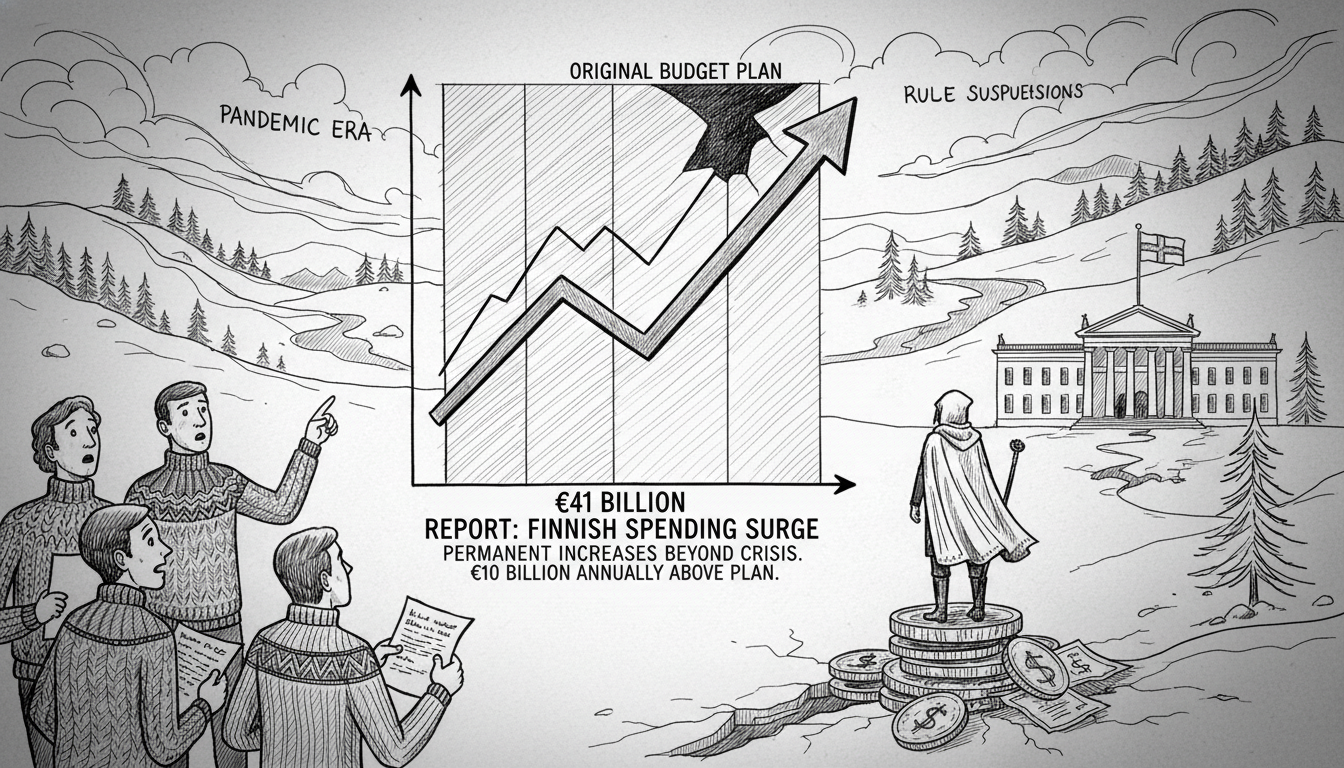Finland's National Audit Office released a groundbreaking report on government budget increases during the COVID-19 pandemic. The findings reveal extraordinary spending patterns that have reshaped the country's fiscal landscape.
The audit shows that former Prime Minister Sanna Marin's government approved historically large budget increases between 2020 and 2023. These additional expenditures accumulated to approximately €41 billion beyond pre-pandemic spending plans. The government initially formed under Antti Rinne in summer 2019, with Marin taking leadership later that year.
Annual state budget levels averaged €10 billion higher than originally planned throughout the entire electoral term. Senior economist Suvi Kangasrääsiö from the audit office expressed surprise at the findings. She noted that 2020 began with expenditures rising by roughly €10 billion above original plans, and this elevated spending level continued annually.
What makes these findings particularly noteworthy is how Finland temporarily abandoned its fiscal framework and EU financial rules during the pandemic. The audit reveals these spending increases weren't solely directed at COVID-19 crisis measures. The government made permanent budget increases unrelated to the emergency situation.
Initially, nearly 70% of additional spending targeted pandemic response measures. This included outbreak containment, expanded unemployment benefits, and business support programs. However, by 2023, these crisis-related expenditures had nearly disappeared while non-pandemic spending increases continued growing and remained permanently elevated.
Kangasrääsiö acknowledged her pre-report assumption that COVID-related spending would become permanent fixtures. The reality proved different. What surprised researchers was discovering permanent increases allocated to other areas while using pandemic justification to suspend normal fiscal rules.
The audit office identified specific areas receiving permanent funding boosts. These included support for municipal finances and increased operational expenses for state administration. Defense spending also received permanent increases, though these were smaller and considered justifiable.
The report concludes that state budget levels were set unnecessarily high for multiple years. This resulted in unused appropriations and funds carried over to subsequent years. Essentially, the government budgeted more money than necessary according to the audit findings.
Experts assessing the situation noted Finland failed to return to normal economic policy implementation after the crisis. This raises concerns about fiscal discipline and long-term budget sustainability.
Kangasrääsiö emphasizes key lessons from the pandemic years. She argues that deviations from fiscal rules must be clearly limited to essential crisis spending needs. The use of exception clauses requires stricter definition and application.
Limiting exception clause usage could strengthen credibility of fiscal rules and support public finance sustainability in future crises. The economist states that when rules are relaxed for exceptional circumstances, spending discipline should remain in effect for other areas.
Finland currently holds a national exception clause for EU economic rules related to increased defense spending. Kangasrääsiö suggests lessons from the COVID-19 crisis could apply to this current situation. When exceptions are granted for specific purposes like defense, the flexibility should be used exclusively for that purpose.
The audit findings come at a crucial time for Finnish economic policy. With the country facing new security challenges and economic pressures, understanding past spending decisions becomes increasingly important for future fiscal management.

